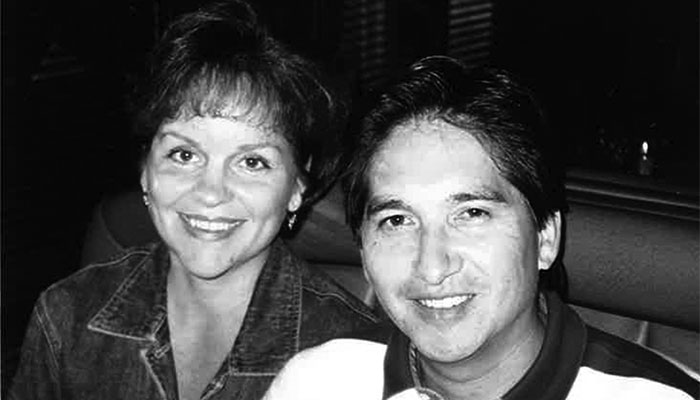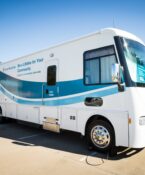PA had ‘found his calling’
By Alex Branch
Justin Capers began his career in the chemical industry. But his passion was always for medicine, inspired by childhood memories of following his physician father on weekend rounds at the Dallas VA Medical Center.
So in his late 30s, Justin arrived at UNT Health Science Center determined to follow his dream of working in the medical field.
He graduated in 2005 with a Masters in Physician Assistant Studies, launching a rewarding 10-year career in spinal surgery and neurosurgery. First at Geisinger Health Systems and then at Penn State Hershey Medical in Pennsylvania, Justin was known as an unwavering advocate for patients and a provider focused on making the right diagnosis.
“Justin found his calling,” said his wife, Dixie Anderson-Capers. “He changed people’s lives by accepting nothing but the highest quality of care for them.”
Justin was diagnosed with severe aplastic anemia late August 2015. His immune system was severely compromised, and in November he died from pneumonia. He was 55.
As she grieved, Dixie wanted to ensure that her husband’s legacy continued to encourage the dreams of other people wishing to become physician assistants. This summer, she established a scholarship in Justin’s name to benefit a UNTHSC Physician Assistant Studies student.
“Justin always called the Health Science Center the turning point in his life,” Dixie said. “He felt so privileged to attend school there, and it molded how he practiced medicine.”
Justin’s transformation was striking. During his undergraduate years at Texas Christian University, he studied just enough to graduate with a bachelor’s degree in General Studies. When he applied years later at the Health Science Center, an advisor told him that he would need to first enroll in the Texas Academic Fresh Start program.
Undeterred, Justin obtained two bachelor’s degrees from the University of Texas at Dallas, one in molecular biology and another in neuroscience. His improved academic record and persistence resulted in his admission to the UNTHSC PA program.
In Hershey, Justin was known for mentoring student PAs and an uncanny ability to make unusual diagnoses that other providers missed. It was common to find Justin awake early in the morning researching his patients’ most complex symptoms.
He often spoke of former instructors at the Health Science Center. He nicknamed Hank Lemke, DHSc, PA-C, the former program chairman, “Daddy Hank” for his guidance.
“I remember Justin well because of his enthusiasm for learning,” Dr. Lemke said. “I am sure the student who receives this scholarship will strive for the same level of dedication.”


![Uyen Sa Nguyen Scaled[58]](https://www.unthsc.edu/newsroom/wp-content/uploads/sites/16/Uyen-Sa-Nguyen-scaled58-145x175.jpg)



Social media